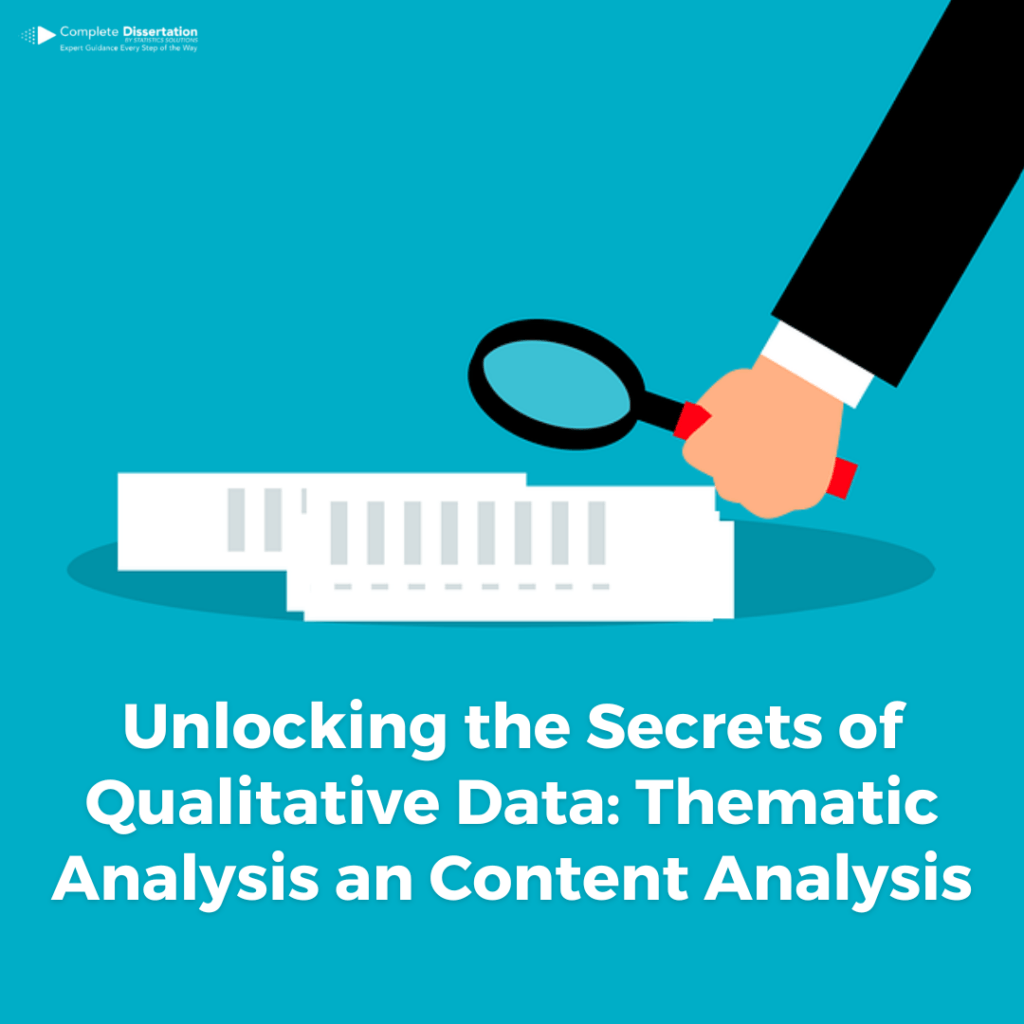Unlocking the Secrets of Qualitative Data: Thematic Analysis and Content Analysis
When analyzing qualitative data, researchers often use two methods: thematic analysis and content analysis. While they both have their similarities, they also have some important differences.
Thematic Analysis
Thematic analysis is a way of identifying, understanding, and interpreting patterns of meaning in data. Researchers often use it to explore the experiences and perspectives of participants in a study. The process of thematic analysis involves reading the data several times, identifying themes, and coding the data accordingly. To begin, the researcher must read through the data and identify meaningful segments, then code them according to themes. The themes are then organized and analyzed to generate an understanding of the data. Thematic analysis is quite flexible and can be used with both quantitative and qualitative data. When the focus of research is to understand the personal experience of a group of people, such as in a qualitative survey, it is a good option to consider.
Content Analysis
Content analysis, on the other hand, is a way of quantitatively analyzing data. Researchers use it to examine patterns in the frequency of words, themes, or other content within a text. The process of content analysis involves counting the number of times certain words or themes appear in the data, and then analyzing the results. Content analysis is great for identifying patterns and trends in large amounts of data. It is often used to analyze media like newspapers or social media posts. It’s a useful option when research is focused on understanding the frequency of certain themes or content in a specific media or in a large set of data.
Final Remarks
In summary, both thematic and content analysis are methods used to analyze qualitative data and answer different research questions. Thematic analysis is used to explore the experiences and perspectives of participants, while content analysis is used to identify patterns and trends in large amounts of data. It’s important to consider the research question and the data you have to decide which method is the most appropriate for your research.
Looking for a tool to analyze your qualitative data? Check out Intellectus Qualitative, the ultimate platform designed to redefine your qualitative research experience. Whether you’re a novice student researcher, a faculty member, or an experienced researcher, you’ve discovered a tool that combines simplicity with the power of AI.
Take the course: Thematic Analysis

We work with graduate students every day and know what it takes to get your research approved.
- Address committee feedback
- Roadmap to completion
- Understand your needs and timeframe
